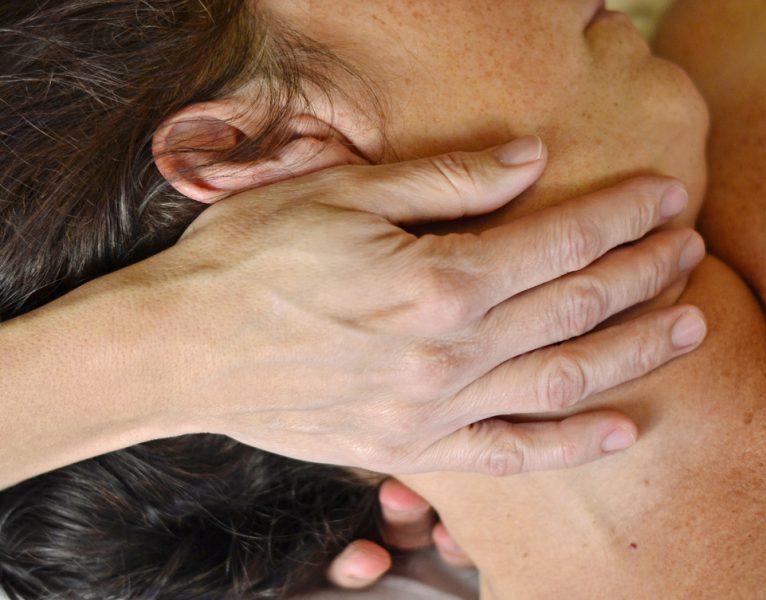TMJ Treatment in Sarasota
TMJ disorders have a number of causes such as a previous injury to the jaw, arthritis, and muscle fatigue from an improper bite leading to clenching and grinding of the teeth. Most cases of TMJ disorders can be treated non-surgically with occlusal splint therapy, a bite adjustment, or a combination of these two therapies. Acute TMJ pain may be treated with medication and a soft diet while more chronic TMJ pain requires splint therapy and bite analysis and correction.
An occlusal splint is sometimes referred to as a night guard and is made of a Hard Plastic. Soft plastic night guards are not indicated for TMJ therapy. The idea behind this is that the position of the teeth are preventing the TMJ and lower jaw from reaching its proper rest position in the skull – proper rest position triggers brain to turn off muscle activity to the jaw. The splint prevents interference caused by the teeth and allows the jaw and TMJ to be in alignment with the skull and thus relieving the joint of stress and the muscles of fatigue. Some cases of TMJ disorder do require surgical intervention but usually as a last resort.
Adjusting the bite or teeth position is another way of getting the jaws positioned correctly to align the TMJ. An adjustment can be as easy as polishing off some tooth structure and/or adding to the tooth with bonding. It can also require full mouth reconstruction with crowns and veneers. It may require a combination of procedures so it is very important to perform an occlusal analysis prior to full mouth reconstruction therapy.
An occlusal analysis of the bite and TMJ is performed by taking a molds of the teeth and a bite record. The models of the teeth are mounted on a special device with simulates a functioning jaw – an articulator. Once the models of the teeth are mounted on the articulator, carbon paper is used to detect where the teeth come together and how they function. This is where you can measure and determine if and where tooth structure needs to be removed or restored in order to get the teeth meeting correctly. After the analysis has been performed on the articulated models, Dr. Michael meets the patient and discusses his findings and recommends treatment options.
TMJ has a variety of symptoms including jaw pain, facial pain, headaches, sensitive teeth, ringing ears, and bruxism. If you are struggling with TMJ and are wondering what measures can be taken, make an appointment with Dr. Hank and the team at Sarasota Dentistry.


